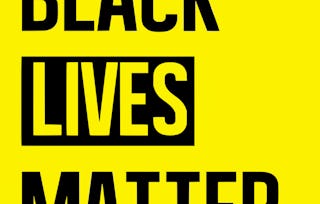The tragic deaths of George Floyd, Breonna Taylor, and Ahmaud Arbery have sparked a wave of renewed protests against police brutality across the United States. These nationwide uprisings have transformed into an intense interest from the public around understanding systemic racism and abuse of power. Millions of Americans and people around the world are watching incidents of police violence and excessive force captured on video, but are looking to learn about the inequalities at the root of these incidents. While the calls of Black Lives Matter protesters to #DefundThePolice are being heard for the first time by many Americans, they are part of a longstanding effort by communities and activists to reinvest in communities rather than policing and prisons. In this course, you will learn about the history of police violence in America, become aware of laws and policies that prevent accountability, understand the demands of protesters, and gain the knowledge and tools to fight for change locally. The content for this Community Awareness course is adapted from a Teach-Out launched in July of 2020 from experts from across the United States involved in activism, social work, law, government, and higher education.

Community Awareness: Police Brutality in the U.S.
5 days left! Gain next-level skills with Coursera Plus for $199 (regularly $399). Save now.

Community Awareness: Police Brutality in the U.S.

Instructor: Teach-Out Experts
2,565 already enrolled
(22 reviews)
Skills you'll gain
Details to know
See how employees at top companies are mastering in-demand skills

There are 5 modules in this course
An introductory history to the roots of modern policing in the United States.
What's included
3 videos8 readings2 discussion prompts
An overview of some of the many costs of police violence to the lives of individuals and communities impacted by police violence.
What's included
8 videos11 readings3 discussion prompts
In this module, we will cover some of the pressing issues in the patterns and practices of modern policing in the United States that present challenges to preventing police violence and misconduct.
What's included
5 videos6 readings2 discussion prompts
In this module, we will explore the various ways that individuals and communities are working to respond to systemic police violence and misconduct from the arts and popular culture to our experts thoughts on how we can address policing issues locally and nationally.
What's included
13 videos2 readings3 discussion prompts
In this module, you will find resources, advice, and strategies for planning how you can contribute to positive change in your community and develop an action plan to move forward.
What's included
12 videos12 readings1 discussion prompt
Instructor

Offered by
Explore more from Governance and Society
 Status: Preview
Status: PreviewJohns Hopkins University
 Status: Preview
Status: Preview Status: Free
Status: FreeUniversity of Colorado Boulder
 Status: Preview
Status: PreviewEmory University
Why people choose Coursera for their career

Felipe M.

Jennifer J.

Larry W.

Chaitanya A.
Learner reviews
- 5 stars
54.54%
- 4 stars
36.36%
- 3 stars
4.54%
- 2 stars
0%
- 1 star
4.54%
Showing 3 of 22
Reviewed on Aug 14, 2023
This course gave me some insight into Police brutality and since I am pursuing my PhD it will be used as a source.
Reviewed on Feb 14, 2023
This is an excellent course filled with good, solid information presented by a variety of skilled instructors who work in the area in the real world. Highly recommended.
Reviewed on Sep 29, 2023
Good information about police violence and corruption, and how we can address these serious problems.
Frequently asked questions
To access the course materials, assignments and to earn a Certificate, you will need to purchase the Certificate experience when you enroll in a course. You can try a Free Trial instead, or apply for Financial Aid. The course may offer 'Full Course, No Certificate' instead. This option lets you see all course materials, submit required assessments, and get a final grade. This also means that you will not be able to purchase a Certificate experience.
More questions
Financial aid available,





